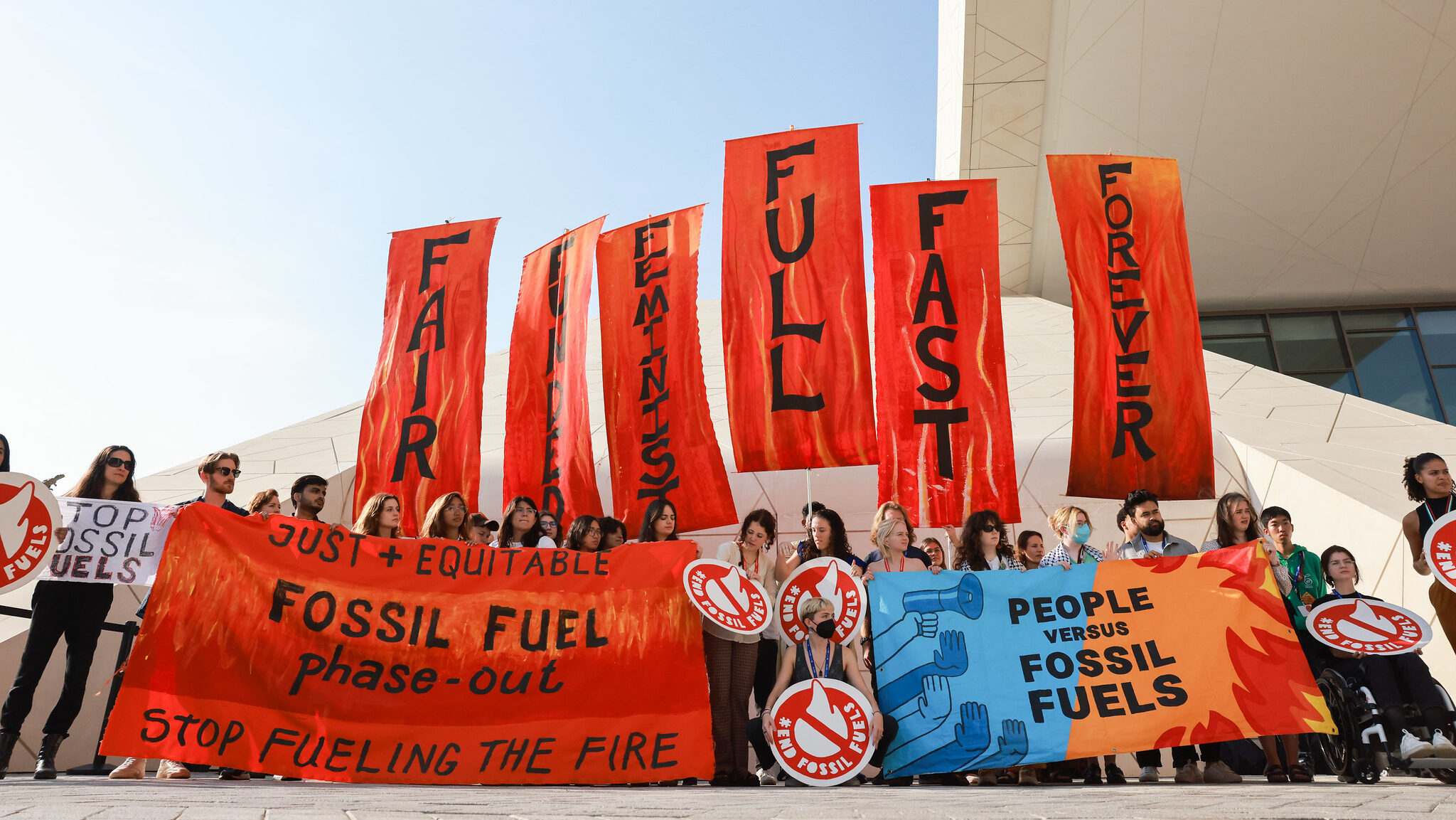COP28 Outcomes: Progress But Not Enough Of It
After a fraught fortnight, COP28 has now officially ended. Despite low expectations even before the event started, some landmark progress on fossil fuel abatement was made – though the deal is far from what was hoped for.
A historic deal?
COP28 took place in the United Arab Emirates (UAE), one of the world’s biggest oil producers. This hosting decision, alongside the heavy presence of fossil fuel lobbyists at the conference, led many to take the cynical view that the event was destined to fail in its vision of advancing international action to combat the climate crisis. As the conference neared its end, this outcome seemed increasingly likely as decisions failed to materialise – yet, after one day of overtime, a deal was pulled from the jaws of defeat.
For the first time ever, countries agreed to “transition away” from fossil fuels in a 21-page deal as part of the first global stocktake on the goals set within the Paris Agreement. Though the language falls far short of setting strong targets or any sort of legal framework for this transition, past COP deals scarcely addressed fossil fuels at all – so, diplomatically speaking, it’s a big step. It also sends a clear signal to businesses, policymakers, and industry that the age of fossil fuels is beginning to end, which will undoubtedly influence economic and policy decisions. In his closing speech, UN Climate Change Executive Secretary Simon Stiell described the decision as “the beginning of the end” of the fossil fuel era.

Climate protesters at COP28. Photo: UNclimatechange on Flickr.
But is it enough?
Many argue that, even if the deal is a big step, it’s a far smaller step than what is needed to truly address the climate crisis. The Alliance of Small Island States (Aosis) was especially unimpressed, saying their inputs were insufficiently considered and that the deal would not protect them from obliteration via sea level rise. In the closing plenary, their representative said the deal “potentially takes us backward rather than forward”.
The phrasing of the deal also used much weaker language than the original iteration, which called for a “phase out” of fossil fuels. While this might seem like a trivial difference, it has big ramifications for countries’ fossil fuel obligations. This softening was almost certainly due to the influence of oil-producing nations such as Saudi Arabia and fossil fuel lobbyists.
Climate scientist Professor Michael Mann described the promise to “transition away” as “like being diagnosed with diabetes and promising your doctor you’ll “transition away” from donuts”, highlighting the lack of urgency in the language used. In an LA Times article, published the day before the conference ended, he said, “The window of opportunity to keep warming below 1.5 degrees Celsius is closing. It will shut tight in a matter of years without rapid and meaningful progress. We must seize this moment to fix the broken COP process and stop the world from barreling down the road to ruin.”
Other promises
Nations also pledged to triple renewable energy production between now and 2030, which Manish Bapna of the Natural Resources Defense Council described as “encouraging about this conference”, saying in a PBS interview that “we are beginning to see the early signs of a better future, a more inclusive, a more productive, a more resilient future.”
Other agreements included the decision to end deforestation by 2030, and to rein in the release of methane, a potent greenhouse gas – both commendable targets. The lack of enforcement power for all targets, however, raises doubts about how they will be achieved if nations change their mind when it comes to domestic policy.
What comes next?
Despite more progress than many expected, climate scientists, advocates, and activists remain disappointed. A paper by Hansen et al entitled “A Miracle Will Occur” Is Not Sensible Climate Policy”, published on 7 December, states that “wishful thinking as a policy approach must be replaced by transparent climate analysis, knowledge of the forcings that drive climate change, and realistic assessment of policy options.” While progress may look positive from a policy perspective, from a scientific perspective it is simply not happening fast enough. The global stocktake revealed, unsurprisingly, that most countries are far behind their own climate targets.
Perhaps the biggest lesson from COP28 was that, while international climate policy is undoubtedly critically important, it cannot be solely relied upon for the changes needed to secure a liveable future. Those changes will need to be driven from all levels: by shifts in investments, business practices, national and regional policy, and culture itself. This is a transition that involves everyone.
About the Author: Jacob Ashton
POPULAR
COMMENTS
- The risk with the path to a hothouse Earth | Climate State on Climate Tipping Points Existential Threat to Our Life Support Systems
- Robert Schreib on Electricity generation prices may increase by as much as 50% if only based on coal and gas
- Robert Schreib on China made a historic commitment to reduce its emissions of greenhouse gases
- Lee Nikki on COP30: Climate Summit 2025 – Intro Climate Action Event
- Hollie Bailey on Leaders doubled down on fossil fuels after promising to reduce climate pollution